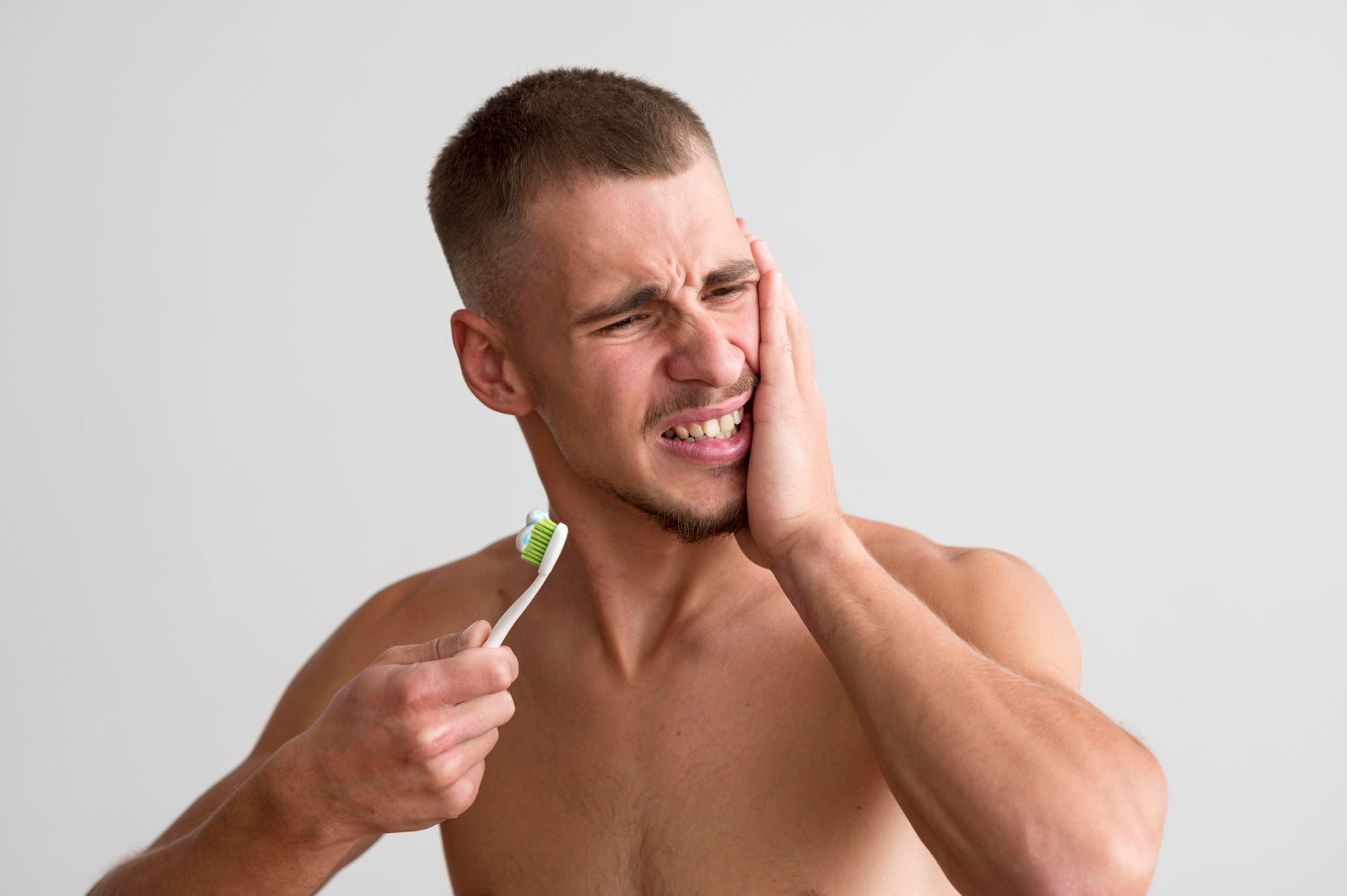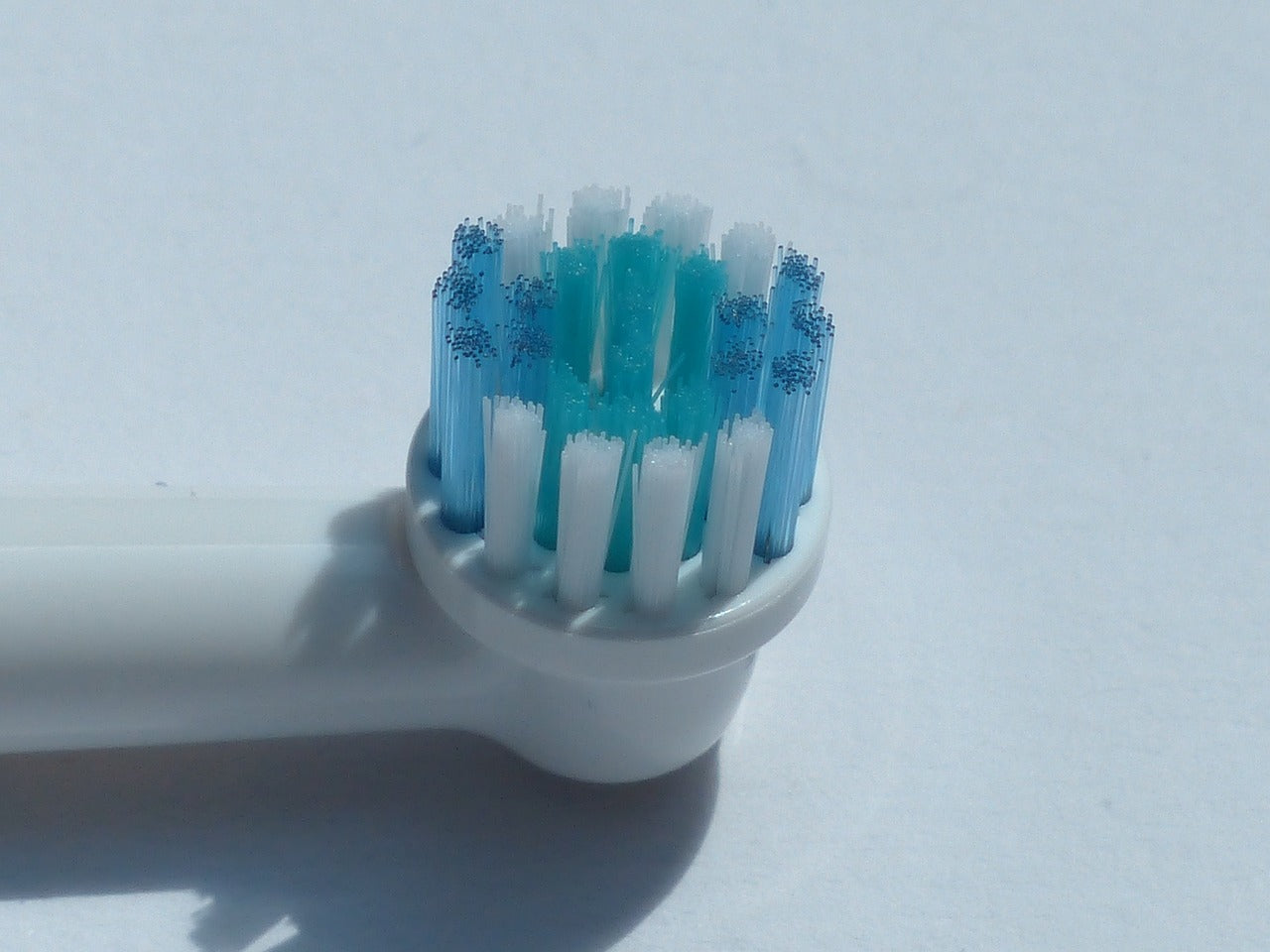Sensitive teeth make life difficult. Eating hot or cold as well as sweet or sour foods triggers unpleasant flashes of pain, making you lose your desire for ice cream or cake.
At worst, people with pain-sensitive teeth live with the constant fear of suddenly getting a toothache - even a cold draft could become the trigger for a stabbing pain. The quality of life suffers.
Pain-sensitive teeth: receding gums as the main cause
Pain-sensitive teeth are caused by exposed tooth necks, which result from the recession of the gums. The neck of the tooth is the transition area between the crown and the root of the tooth, which is normally covered by the gums. If the gums recede, the tooth necks also expose microscopic channels in the dentin, the most important building substance of a tooth, which serve as a direct connection to the nerves. Stimuli of all kinds (hot, cold, sweet, sour, sometimes even sharp) are transmitted directly to the dental nerve and registered as pain.
Gum recession is often due to periodontitis, an inflammation of the periodontium caused by bacteria and poor oral hygiene. The gums are reddened as well as swollen and slowly recede from the necks of the teeth. You can no longer control advanced periodontitis on your own. It is important that you react early and do not shy away from going to the dentist. On the one hand, the dentist can curb the pain by sealing or filling the neck of the tooth. On the other hand, periodontal disease treatment can fight the periodontitis bacteria. The recession of the gums is stopped, easily attacked gums can regenerate.
Painful teeth: other reasons
In addition to periodontitis, the following factors also influence the pain sensitivity of teeth:
Excessive brushing: It is recommended to brush your teeth twice a day. But that is enough. Scrubbing more often, and then perhaps vigorously with hard bristles, can wear away the enamel and expose the neck of the tooth or root element.
Teeth grinding: Teeth grinding involves high forces that can chip away the enamel. This exposes the tooth necks.
Teeth sensitive to pain: Recommended preventive measures
As with many areas of oral hygiene, the following applies to pain-sensitive teeth: foresight is better than hindsight:
Use toothbrushes with soft bristles, which gently clean teeth and gums. In the demirdental range you will even find extra-soft attachment brushes for electric toothbrushes with 35 percent softer bristles. These have been specially developed for customers with very sensitive problem gums and exposed tooth necks.
Use special toothpastes and mouth rinses that are labeled "sensitive" in stores. These products usually contain strontium, calcium, arginine or amine fluoride. Compounds are formed that are deposited on the tooth, closing the tiny dentin channels.
Gum inflammation, which leads to receding gums and exposure of the tooth necks, often begins in the interdental spaces where the toothbrush cannot reach or reaches with difficulty. It is best to clean the hard-to-reach areas with dental floss or interdental brushes.
Avoid acidic foods and drinks, which can attack tooth enamel.
Control your brushing technique: instead of brushing from "red to white," that is, from gum to tooth, many brush in horizontal motions across the front surface of the teeth. This can injure the gums in the neck of the tooth and cause them to retract as a result.
Talk to your dentist about making a bite splint if you grind your teeth at night.




Leave a comment
All comments are moderated before being published.
This site is protected by hCaptcha and the hCaptcha Privacy Policy and Terms of Service apply.